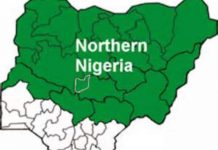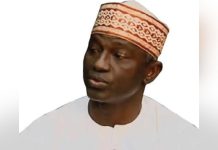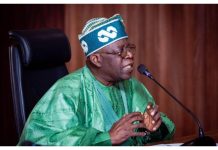Nigeria has improved in major indices of economic growth, the finance minister, Zainab Ahmed, told the National Economic Council (NEC) on Thursday.
Inflation has continually declined since 2017 from 18.72 per cent to 11.08 per cent in July 2019, Mrs Ahmed told the NEC, headed by Vice President Yemi Osinbajo.
Details of Mrs Ahmed’s presentation and that of others were sent to PREMIUM TIMES by Mr Osinbajo’s spokesperson, Laolu Akande.
Mrs Ahmed also said Nigeria’s unemployment rate as at September 2018 was 20.1 per cent.
Contribution of the non-oil sector to GDP has increased from 90.4 per cent in Q1 2018 to 90.9 per cent in Q1 2019, she said.
See the details of the presentation as sent by Mr Akande below.
The Committee requested for extension of time to finalise and present its report next meeting.
The Honourable Minister of Finance, Budget and National Planning informed NEC that the purpose of the presentation is to get inputs and recommendation from the Council for further presentation to Federal Executive Council (FEC) for approval and implementation. She underscored the importance of the presentation as follows: · Nigeria macroeconomic environment has stabilized in recovering gradually. · There has been eight (8) successive month of economic growth since emerging from recession. · The Economic Recovery and Growth Plan (ERGP), remains the basis for the Medium Term fiscal strategy. The Honourable Minister also highlighted successes recorded as follows: · Macro-economic stability has been achieved with growth in end Q3 2019 at 3.01% · Continued increased in Real GDP from 1.89% in Q2018 to 2.01% in 2019 · There has been significant growth in the non-oil sector. · Contribution of the non-oil sector to GDP has increased (from) 90.4% in Q1 2018 to 90.9% in Q1 2019. · Unemployment rate at 20.1% at Q3 2018 · Need for more diversification to boost inclusive growth. · Mr President is strongly committed to employment generation in this second term She also noted that · Considerable success has been recorded in containing insurgency in parts of the North East, with economic activities recovering. · Recurring conflicts between farmers and herdsmen, as well as incidences of flooding, has affected agricultural products. · Breaches in NNPC pipelines still regular, partly accounting for low oil production volume in the first half of the year. · Inflation has continually declined since 2017 from 18.72% to 11.08% in July 2019 · The draft 2020 – 2022 Medium Term Fiscal framework indicates that Nigeria faces significant medium term fiscal challenges especially with respect to revenue generation. Therefore there is a need to improve revenue collections and expenditure management. · Need to take ba old decision and urgent action to achieve fiscal sustainability and macro-fiscal objectives.







